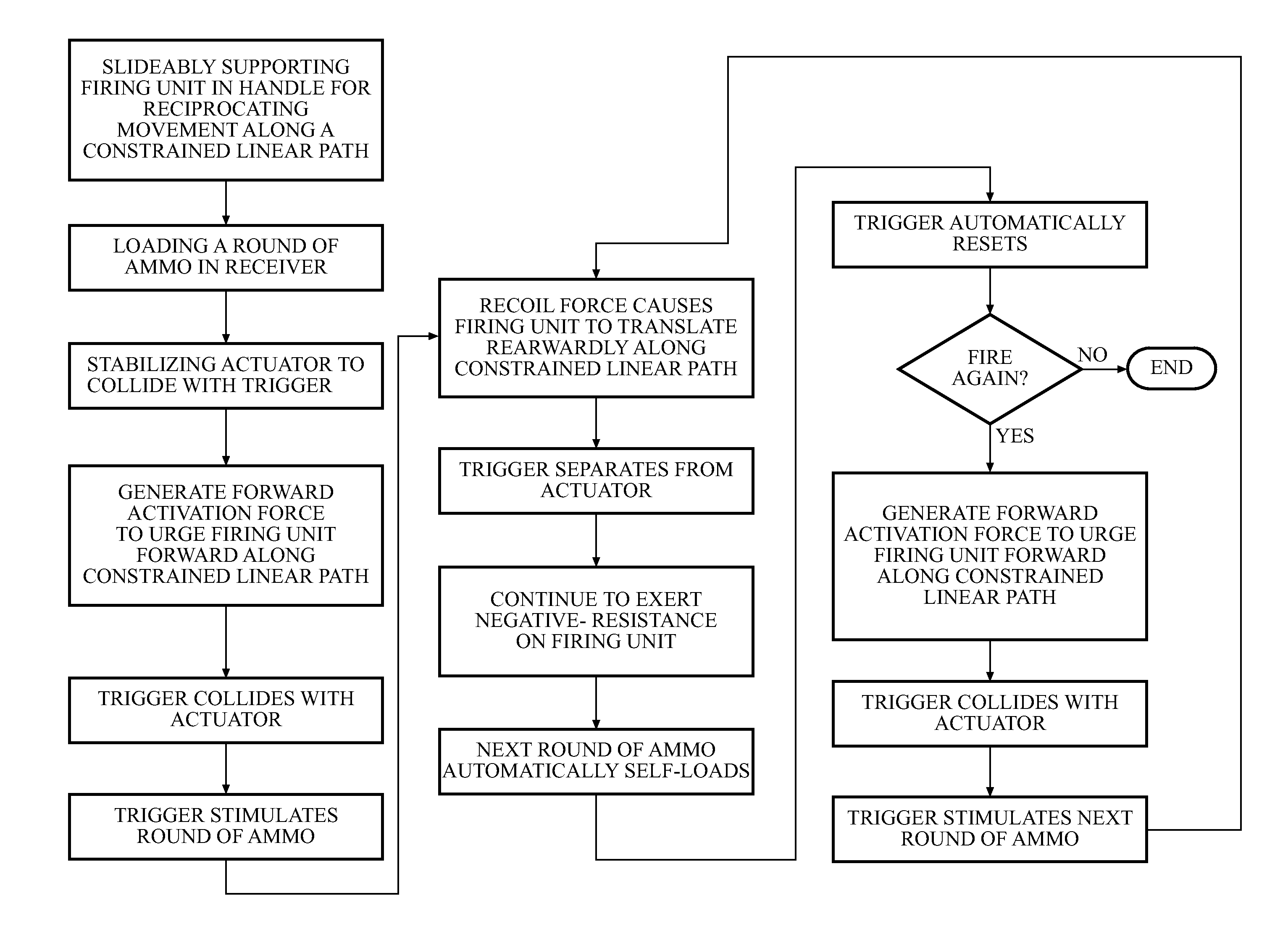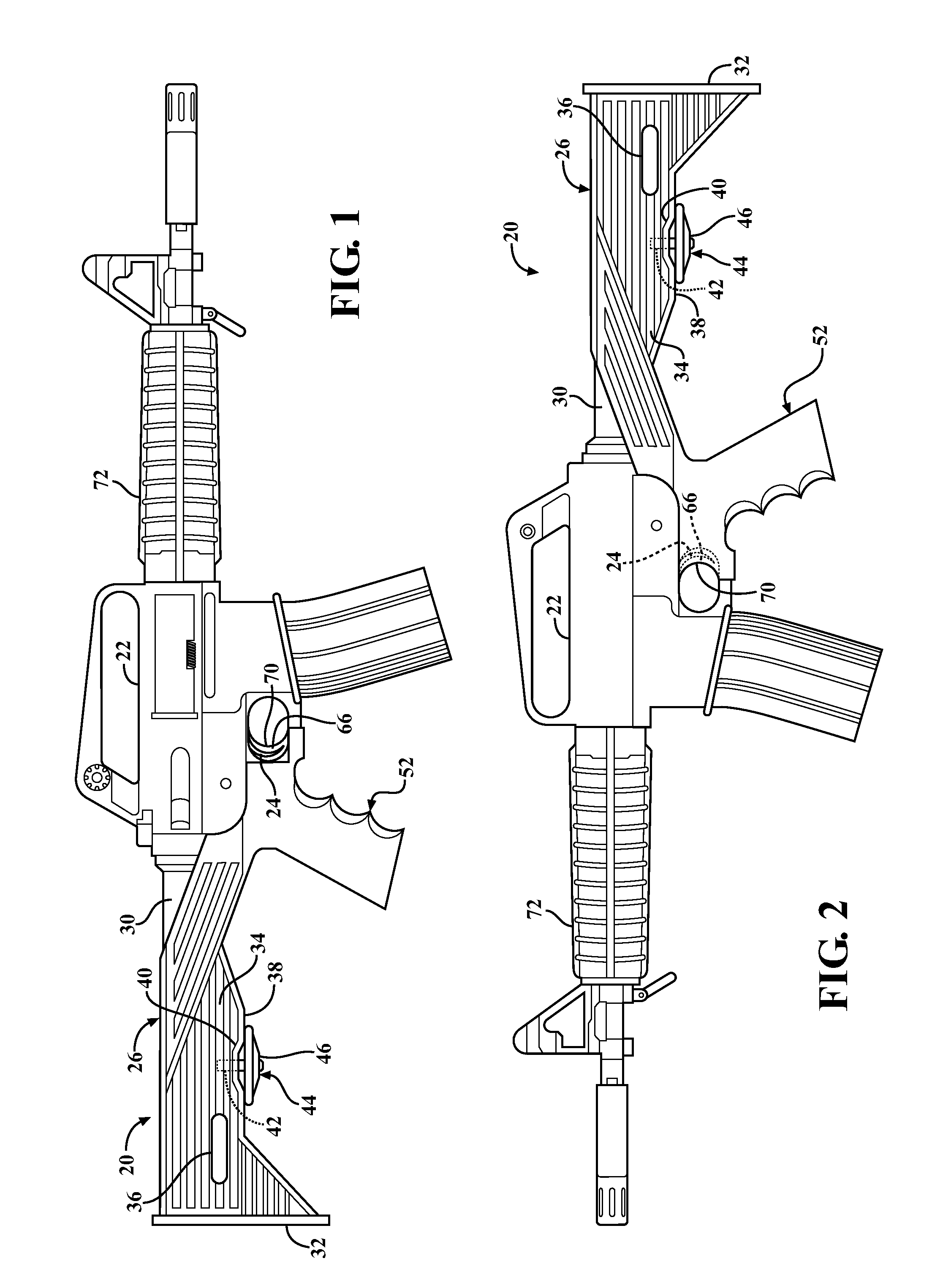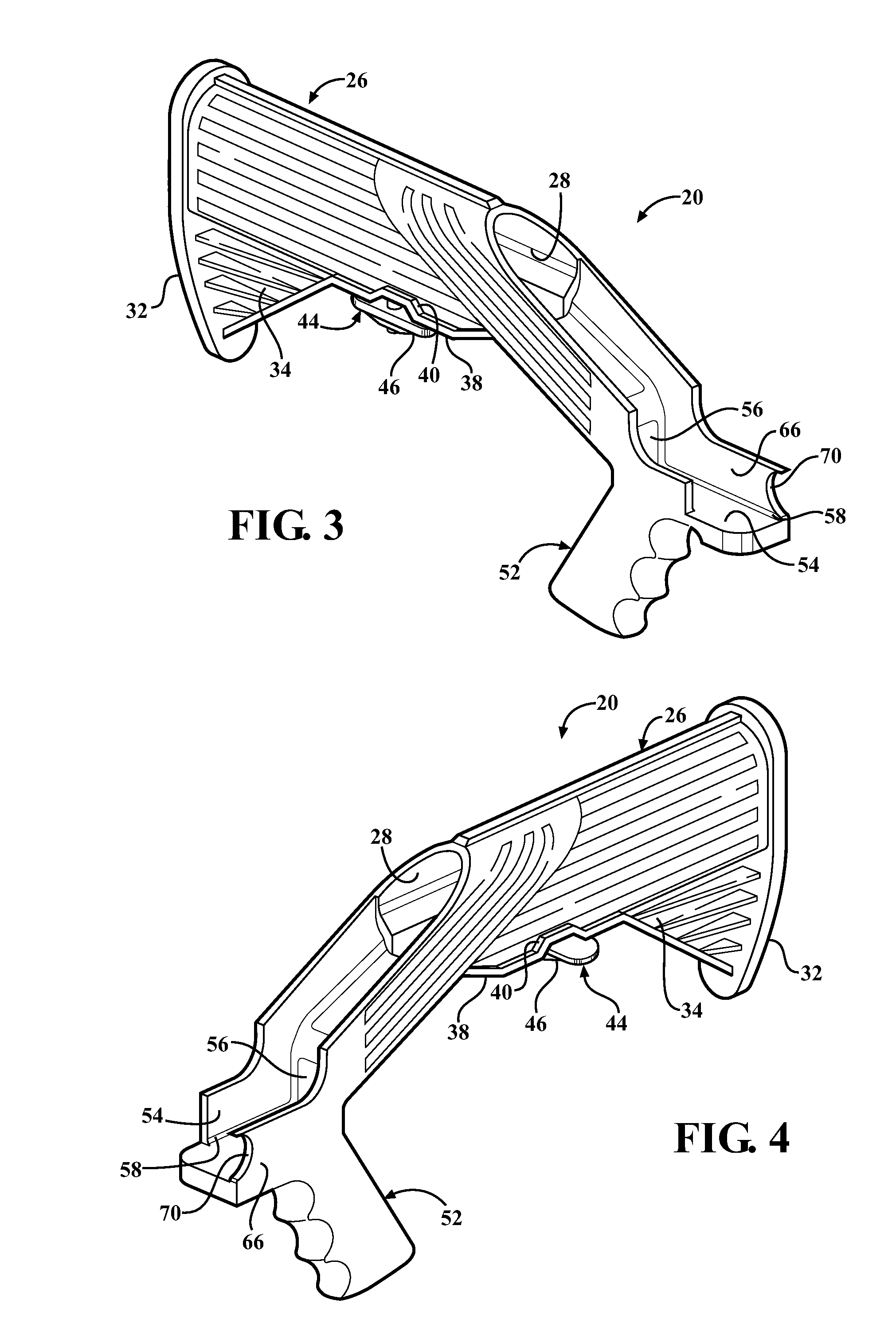Method of shooting a semi-automatic firearm
a semi-automatic firearm and semi-automatic technology, applied in the field of semi-automatic firearm shooting methods, can solve the problems of many safety and accuracy issues of belt loops, operator's skin burns or possibly pinches, and operator's sleeve or skin burns, etc., to achieve stable firing form and grip, and little to no loss of accuracy
- Summary
- Abstract
- Description
- Claims
- Application Information
AI Technical Summary
Benefits of technology
Problems solved by technology
Method used
Image
Examples
Embodiment Construction
[0031]Referring to the Figures, wherein like numerals indicate like or corresponding parts throughout the several views, a serviceable firearm is shown comprising a handle 20 supported in a firing unit 22. The firing unit 22 includes a receiver 21 for chambering a round of ammunition, a barrel 23 extending forwardly from the receiver 21, and a trigger group 24 configured to selectively stimulate a round of ammunition disposed in the receiver 21. The firing unit 22 may also include additional features as will be readily understood by those of skill in the art and also as described in some details further below. The receiver 21 and barrel 23 and trigger 24 are moveable together as a firing unit 22. The handle 20 supports the firing unit 22 in use for aiming and shooting.
[0032]The handle 20 is shown in FIGS. 1, 2 and 10 configured for attachment to an AR-15 type semi-automatic firing unit 22. For contrast, FIGS. 11A and 11B show the handle 20 configured for attachment to an AK-47 type ...
PUM
 Login to View More
Login to View More Abstract
Description
Claims
Application Information
 Login to View More
Login to View More - R&D
- Intellectual Property
- Life Sciences
- Materials
- Tech Scout
- Unparalleled Data Quality
- Higher Quality Content
- 60% Fewer Hallucinations
Browse by: Latest US Patents, China's latest patents, Technical Efficacy Thesaurus, Application Domain, Technology Topic, Popular Technical Reports.
© 2025 PatSnap. All rights reserved.Legal|Privacy policy|Modern Slavery Act Transparency Statement|Sitemap|About US| Contact US: help@patsnap.com



